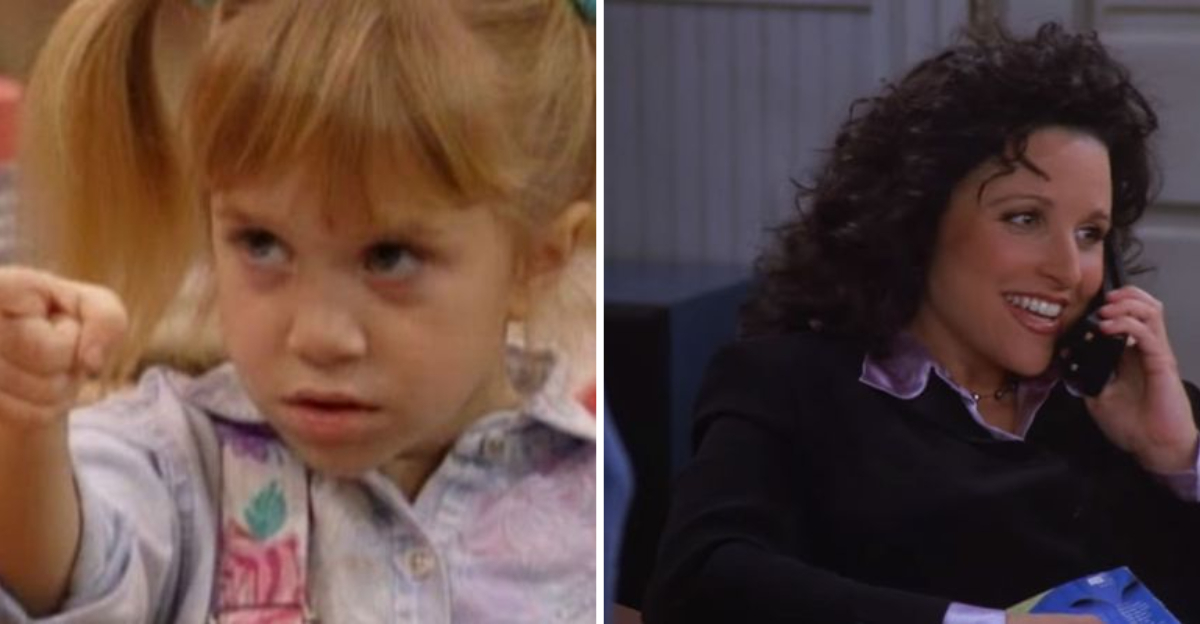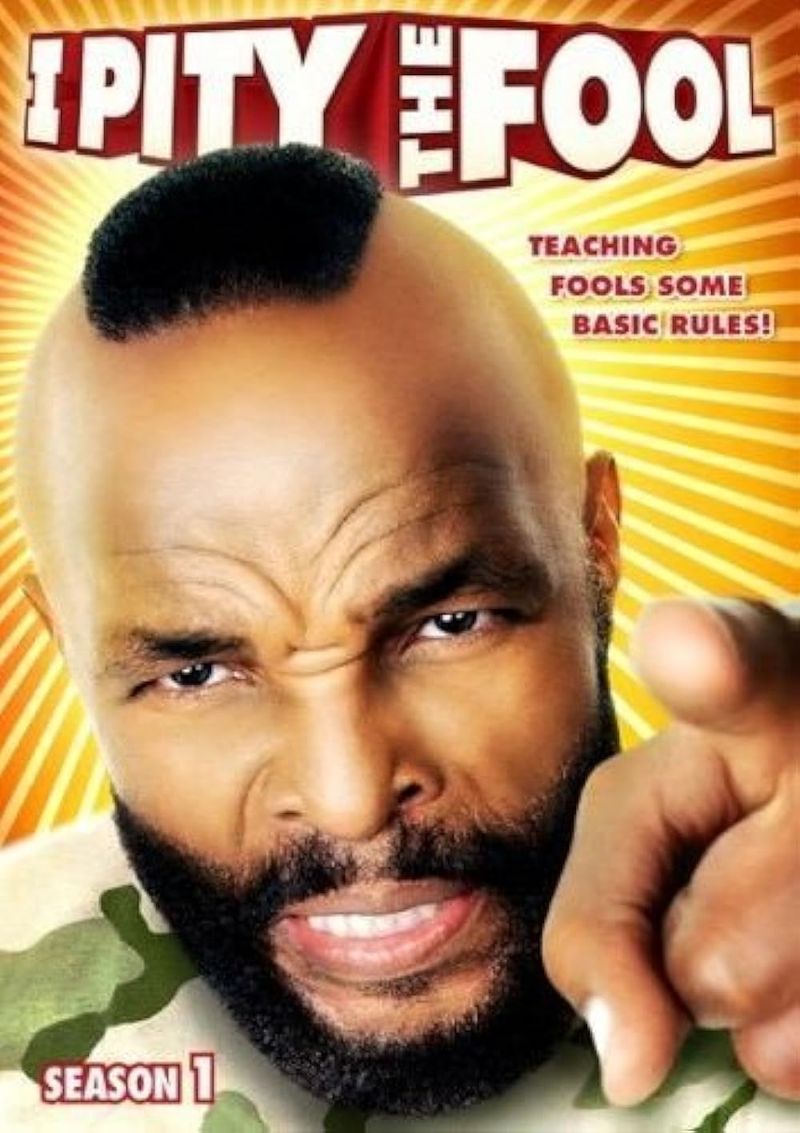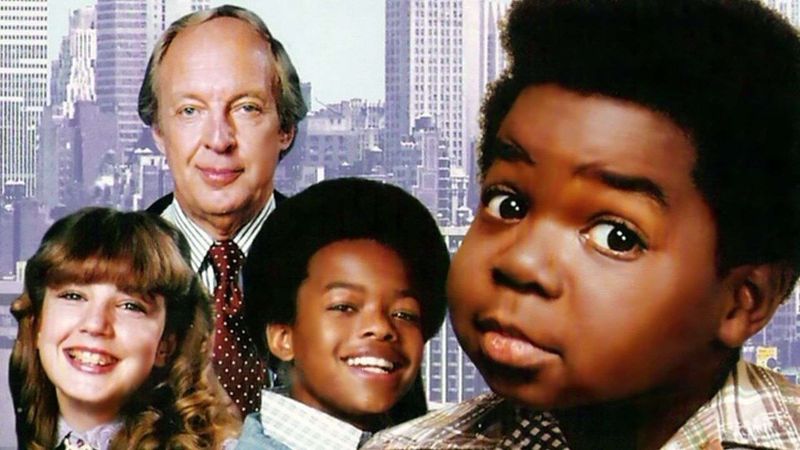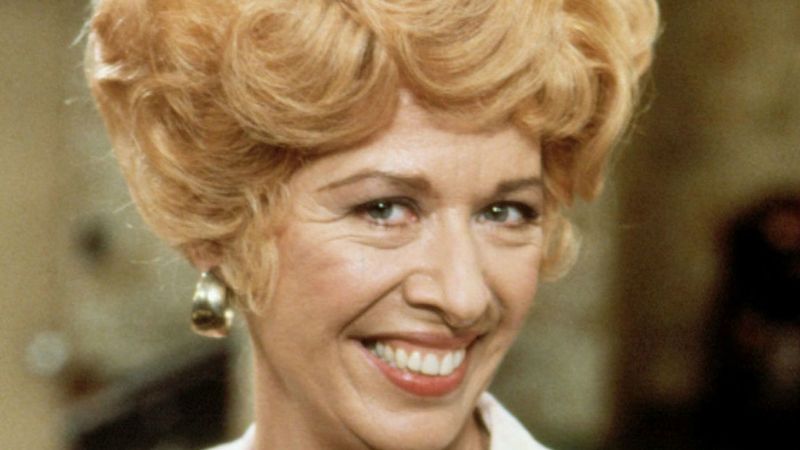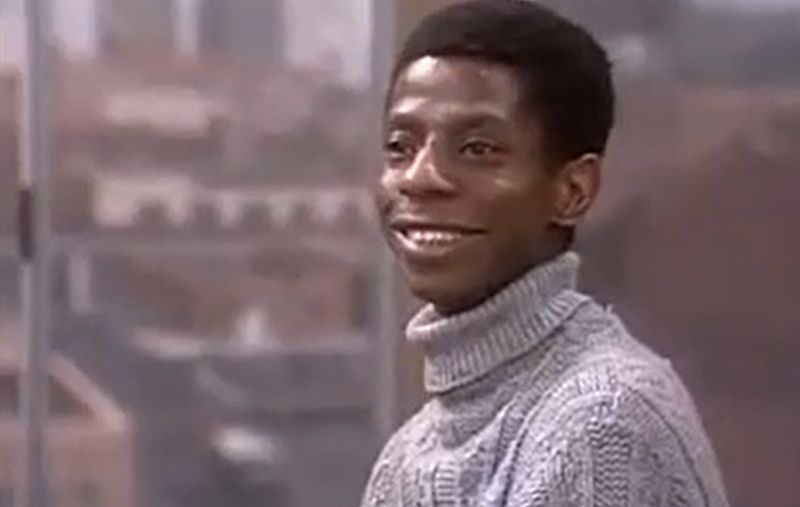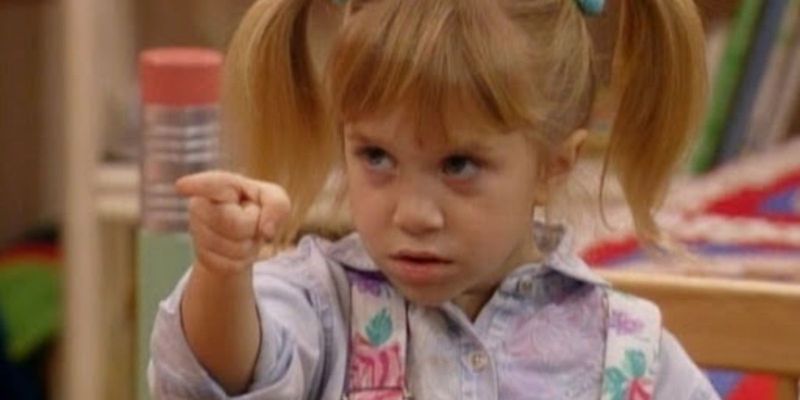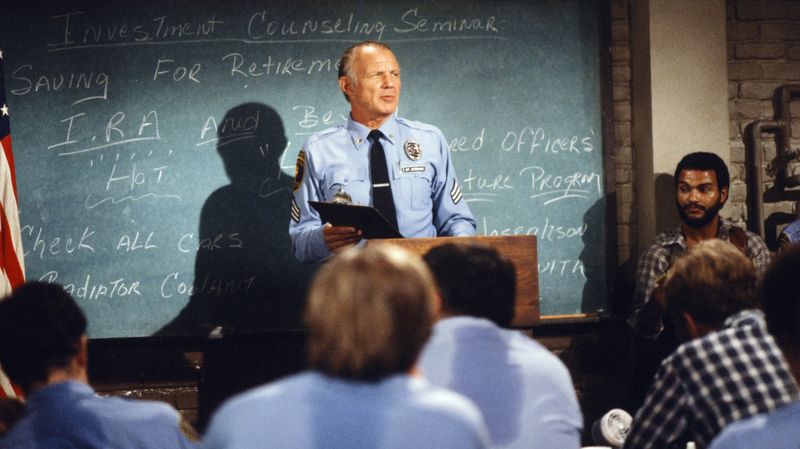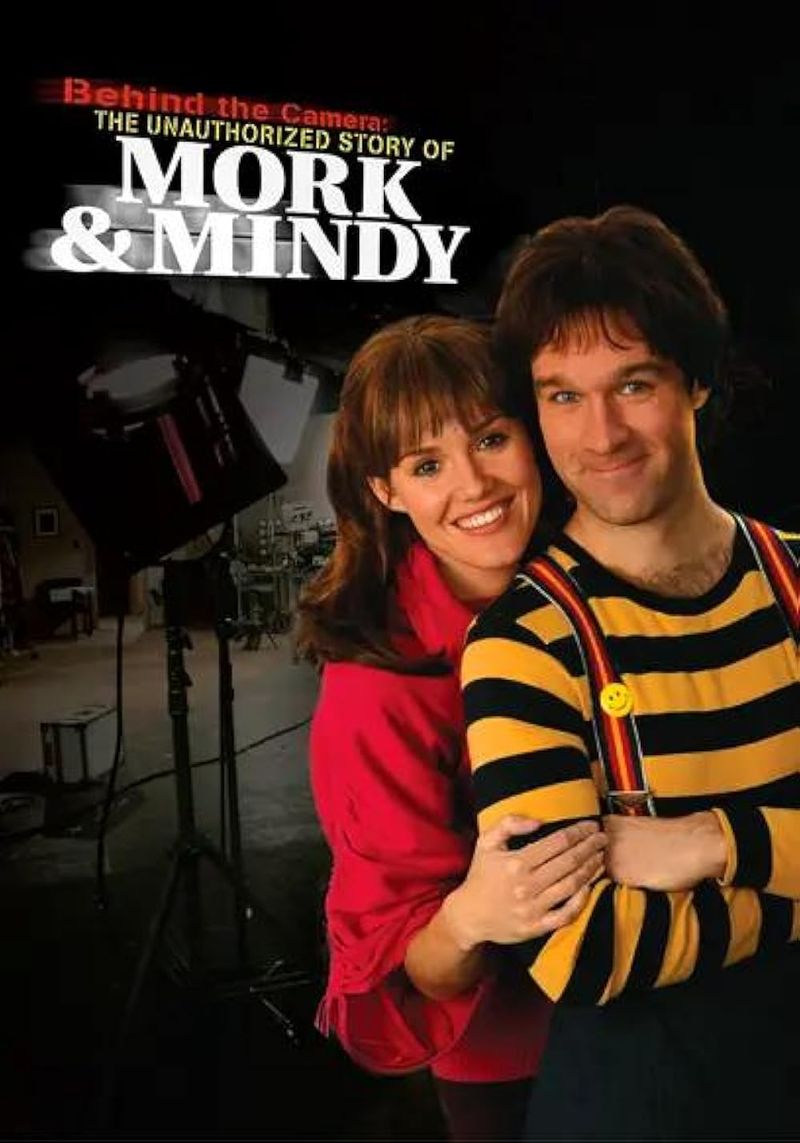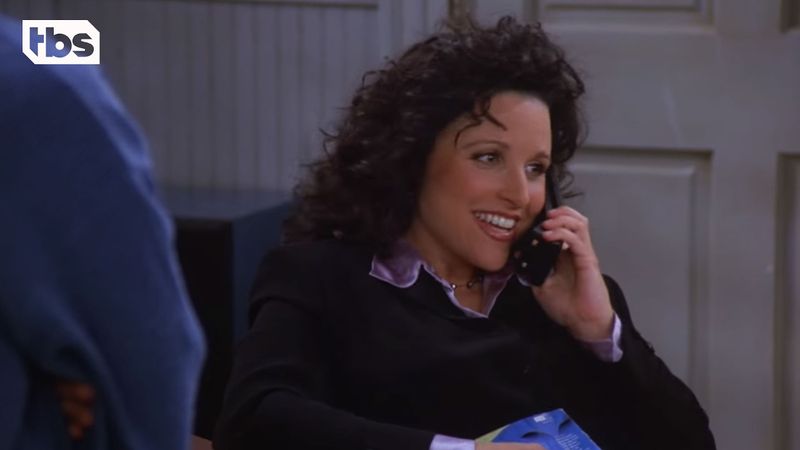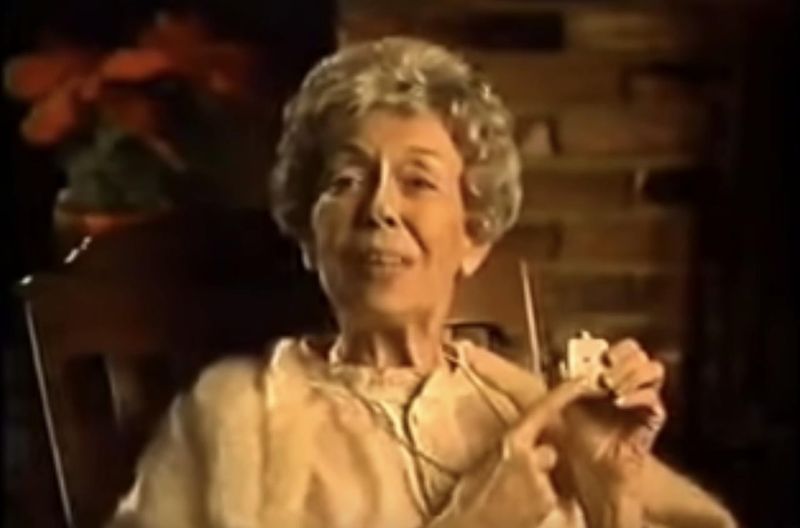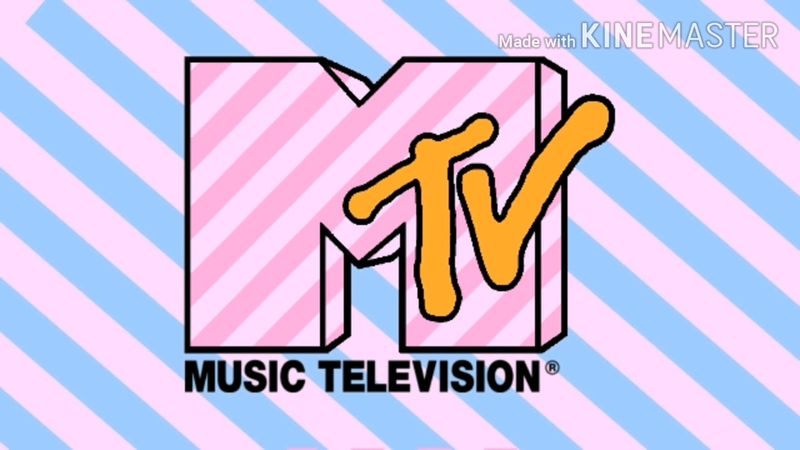The 1980s were a golden era for television, a time when iconic TV lines became embedded in pop culture. These phrases, often humorous and sometimes profound, have resonated through decades, bringing a nostalgic smile to anyone who grew up during that vibrant decade. Here are ten legendary TV lines that any 1980s kid will remember, each carrying a piece of history and a story of its own.
“I pity the fool!”
One of the most iconic lines of the 1980s comes from Mr. T’s character, B.A. Baracus, in the action-packed TV series “The A-Team.” With his distinctive mohawk and gold chains, Mr. T delivered the line “I pity the fool!” with such charisma that it became his trademark.
This phrase was often used when Baracus was about to teach a lesson to the bad guys, encapsulating the spirit of justice and strength.
It transcended the series, becoming a catchphrase in popular culture, symbolizing toughness and an unyielding attitude. Truly, a line that echoes in the memories of many.
“Whatchoo talkin’ ’bout, Willis?”
Gary Coleman’s portrayal of Arnold Jackson in “Diff’rent Strokes” brought this memorable catchphrase to life. Whenever his older brother Willis said something puzzling or surprising, Arnold’s “Whatchoo talkin’ ’bout, Willis?” was the perfect retort.
This line became a humorous way to address confusion or disbelief, delivered with Coleman’s charming and cheeky demeanor.
It captured the essence of sibling dynamics and became an enduring part of 1980s television lore, still quoted today by those who fondly recall the gentle humor and family themes of the show.
“Kiss my grits!”
“Kiss my grits!” became a definitive catchphrase thanks to Polly Holliday’s character, Flo, from the sitcom “Alice.” This sassy retort was Flo’s way of expressing displeasure or sass, often directed at her boss or customers in the diner where she worked.
The phrase perfectly encapsulated Flo’s bold personality, adding a spicy flavor to the show’s interactions.
It resonated with viewers, becoming a popular part of the American vernacular, symbolizing the assertive and independent spirit of many during the 1980s. Its playful defiance is still remembered fondly today.
“Dyn-o-mite!”
Jimmie Walker’s infectious energy as J.J. Evans in “Good Times” made “Dyn-o-mite!” a legendary line. Whenever J.J. found himself in an exciting or victorious moment, out came this exuberant exclamation.
Walker’s delivery, full of vivacity and charm, turned the phrase into an emblem of joy and success.
It became more than just a line, symbolizing the carefree and upbeat spirit of the era. “Dyn-o-mite!” continued to echo through the 1980s, bringing smiles and capturing the essence of happiness and optimism.
“You got it, dude!”
Full House’s Michelle Tanner, played by the Olsen twins, stole hearts with her adorable assertion, “You got it, dude!” Despite her young age, Michelle’s confident and assured delivery of this line made it a favorite.
It was often used to affirm a request or agreement, showcasing her youthful enthusiasm and charm.
This catchphrase exemplified the innocence and familial love that the show celebrated, becoming an enduring part of 1980s television culture. Its simplicity and warmth continue to bring nostalgic joy to those who grew up watching Michelle’s adventures.
“Let’s be careful out there.”
Michael Conrad’s role as Sergeant Phil Esterhaus in “Hill Street Blues” brought a touch of solemnity and care with his parting words, “Let’s be careful out there.” Delivered during police briefings, this line served as a reminder of the dangers faced by officers.
It was a call to duty and vigilance, wrapped in empathy and concern.
The phrase touched viewers, highlighting the human side of law enforcement, and became a signature line of the series. It continues to resonate with those who appreciate the gritty realism and emotional depth of the show.
“Nanoo Nanoo.”
Robin Williams brought the character Mork from Ork to life in “Mork & Mindy,” leaving a legacy with the playful greeting, “Nanoo Nanoo.” It was Mork’s extraterrestrial salutation, delivered with Williams’ unique comedic flair.
This whimsical line captured the imagination of viewers, adding a touch of alien charm to everyday interactions.
It became synonymous with the show’s lighthearted and quirky nature, showcasing Williams’ comedic genius. “Nanoo Nanoo” remains a beloved catchphrase, reflecting the fun and creativity that characterized 1980s television.
“Yada, yada, yada.”
Although “yada, yada, yada” gained fame in the 1990s, its roots trace back to the 1980s with its use in “Seinfeld.” This line succinctly conveyed the idea of skipping over mundane details, delivered with Jerry’s signature dry wit.
It became a part of everyday language, allowing people to gloss over less exciting parts of a story.
The phrase’s popularity underscores “Seinfeld’s” impact on pop culture, although it became a hallmark of 1990s television, its origins in the 1980s showcase the show’s early influence.
“I’ve fallen, and I can’t get up!”
Originally from a commercial for a medical alert system, “I’ve fallen, and I can’t get up!” became an unexpected pop culture phenomenon. The line was delivered with earnestness, highlighting the importance of emergency response for seniors.
Despite its serious context, it gained humorous notoriety, often parodied in various media.
This catchphrase became a symbol of the 1980s advertising landscape, blending earnest intent with unintended comedic impact. Its persistence in popular culture underscores both its humorous and practical elements.
“I want my MTV!”
“I want my MTV!” was more than just a phrase; it was a rallying cry for a generation hungry for music videos and pop culture content. Culminating in one of the most memorable campaigns of the 1980s, this line was popularized by musicians like Sting.
It embodied the youthful demand for the then-revolutionary music channel, MTV, symbolizing the shift in how audiences consumed music.
The phrase captured the essence of 1980s youth culture, a time when MTV shaped the music industry and left an indelible mark on entertainment.
